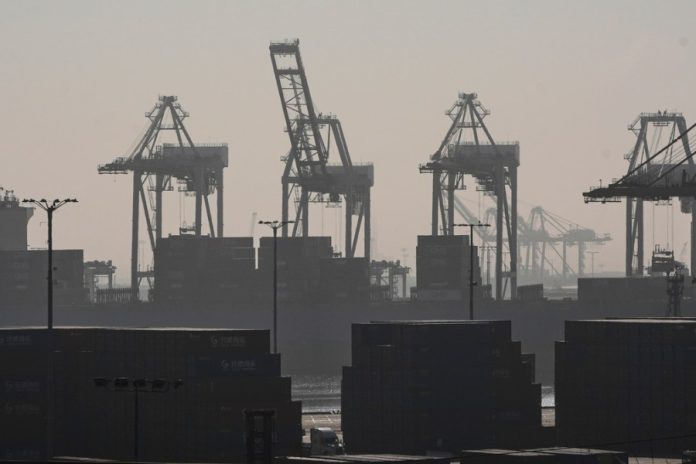
It is not every day that a former chief trade negotiator for the U.S. and the titular leader of the U.S. foreign policy establishment urges the abandonment of a rule-based international trading system that has contributed enormously to unprecedented commercial peace and prosperity for America and the rest of the world.
I refer, of course, to the World Trade Organization. Michael Froman, former U.S. trade representative and current president of the Council on Foreign Relations, has called for U.S. withdrawal in Foreign Affairs. Cordell Hull must be turning over in his grave.
According to Froman, “The global trading system as we have known it is dead … Even if pieces of the old order manage to survive, there is no going back. … Clinging to the old system and pining for its restoration would be deluded and futile.”
Pardon the pining, but should we really do this? The WTO is a global public good of great value, laboriously assembled on a bipartisan basis (at least in America) dating back to when Secretary of State Hull and President Franklin Roosevelt began lowering tariffs during the New Deal in the 1930s.
And what of the desires of 165 of the 166 member countries of the WTO? All of them want fervently to preserve and strengthen, not abandon, the rule-based multilateral trading system overseen by the embattled WTO, not abandon it. The one exception is the U.S. Under the capricious leadership of President Trump, the U.S. has ignored WTO rules and WTO treaty commitments, crippled the WTO’s independent and impartial dispute settlement system, and substituted the rule of power for the rule of law in world trade.
Are all these other countries “deluded?” How stereotypically American to think that we can simply ignore the wishes of other countries in crafting the future of the world.
Froman is certainly right that the WTO has been struggling since even before Trump’s accession. He did a good job as former President Barack Obama’s chief trade negotiator, but, despite his best efforts, the members of the WTO failed to further trade liberalization with a new global deal during the so-called Doha Development Round of negotiations.
He is also right that lowering barriers to trade is a “tough sell politically,” especially nowadays amid the acrimony of so much global economic angst.
But, to echo John F. Kennedy, we do these things because they are hard, not because they are easy. And we do them knowing that the economic gains from trade are maximized worldwide if we lower tariffs and other barriers to trade worldwide and not just here and there. Anything less is not only second-best economically but also raises the threat that trade cooperation may descend into trade confrontation with unforeseen geopolitical consequences.
Consider what Froman proposes as an alternative to a multilateral system: a world full of supposedly “open plurilateral agreements” among coalitions of willing countries outside the legal framework of the WTO. It would build on the proliferation of bilateral, regional, and other non-WTO economic arrangements that have proliferated as multilateral trade deals have become harder to achieve.
The danger of such an approach geopolitically is that these “open plurilateral agreements” could very well turn into competing protectionist trade blocs. To his credit, Froman wants the new plurilateral deals he envisages to be “open.” But how many of the regional, sectoral and other plurilateral arrangements that have been concluded during the past several decades are automatically “open” to other countries? Moreover, when disputes occurred, how would they be enforced? In contrast to WTO dispute settlement (before the American assault on it), the dispute settlement systems of most other international trade arrangements have not always been reliably or routinely effective.
Commercial wars always present the possibility of turning into shooting wars. That is one of the main reasons we created first the General Agreement on Tariffs and Trade and its institutional successor, the WTO, in the first place. As Froman notes, the Peterson Institute for International Economics has concluded that U.S. GDP is $2.6 trillion higher because of increased trade since the end of World War II — averaging gains of $19,500 per U.S. household.
Much of this can be credited to U.S. membership in the WTO. The Bertelsmann Institute has concluded that every member of the WTO has benefited economically from being in the organization — the U.S. most of all. But the most notable accomplishment of the multilateral trading system may just be that, so far, it has helped prevent World War III.
Froman does not mention is the obvious solution for those wanting to reverse the current course and return to freeing trade: open plurilateral agreements among various willing and ambitious subsets of WTO members inside the WTO. Over time, those agreements would expand to become fully multilateral. This is permitted under existing WTO rules, which require that plurilateral agreements be open to all WTO members willing to comply with their rules and to settle disputes under WTO procedures.
Thus, it would avoid the geopolitical problems posed by Froman’s proposed non-WTO solution. This approach has been used before, with information technology, financial services, and more. Indeed, it is how we created much of the WTO back in 1995 — by transforming what had been agreements among some countries into agreements among all the countries in the trading system, binding and fully enforceable in WTO dispute settlement.
Froman’s suggestion that Americans give up on the WTO is a dispiriting sign of our pessimistic time. No doubt he is genuinely seeking the right solution. Perhaps he will think again.
James Bacchus is a former member of Congress and a founding member and twice chairman of the Appellate Body of the World Trade Organization. He is professor of global affairs at the University of Central Florida and adjunct scholar at the Cato Institute. His latest book is “Democracy for a Sustainable World: The Path from the Pnyx.”

